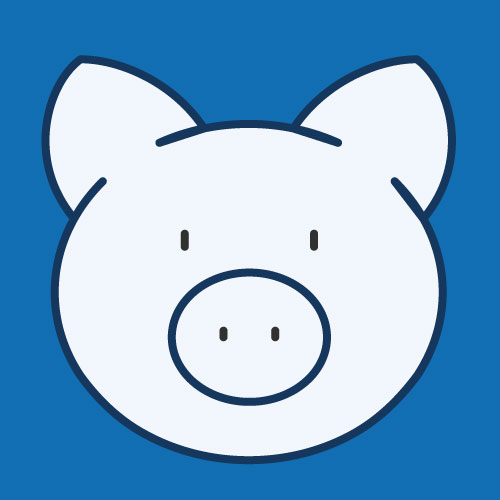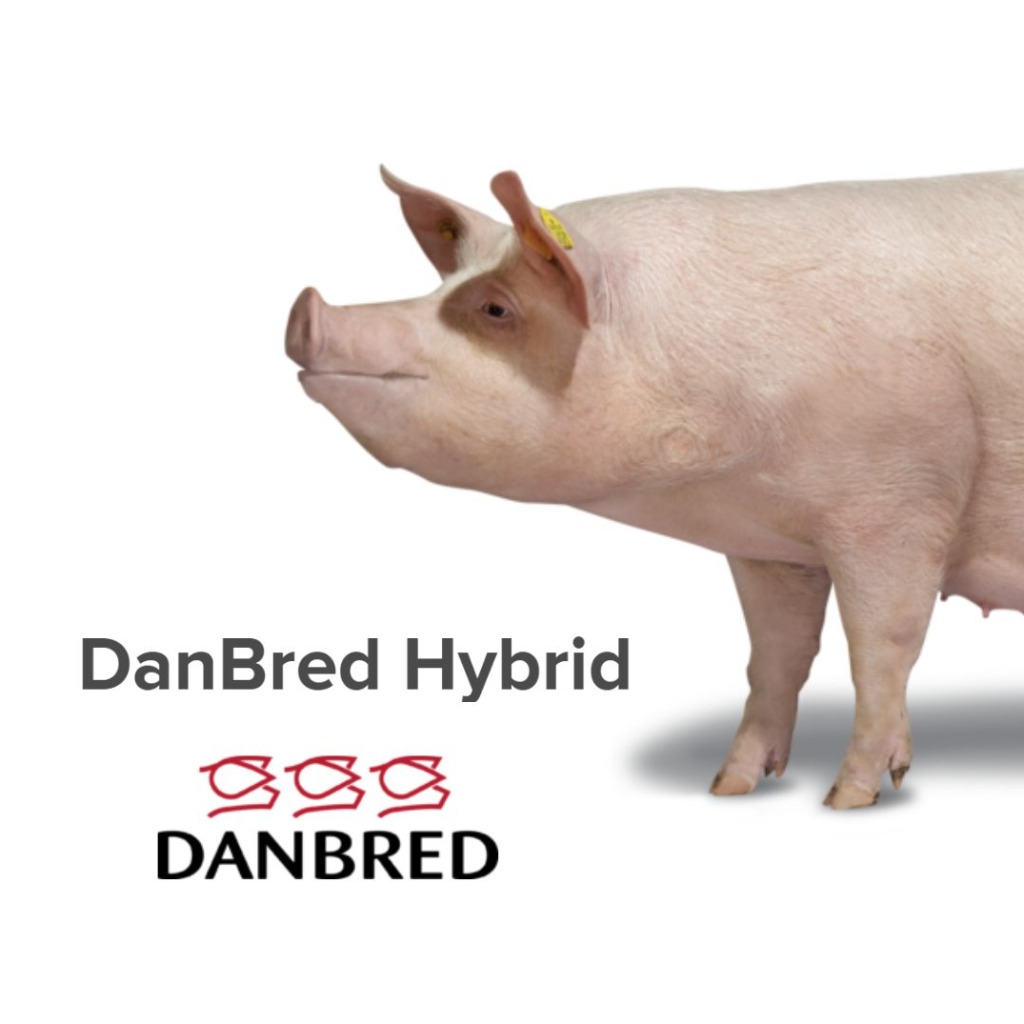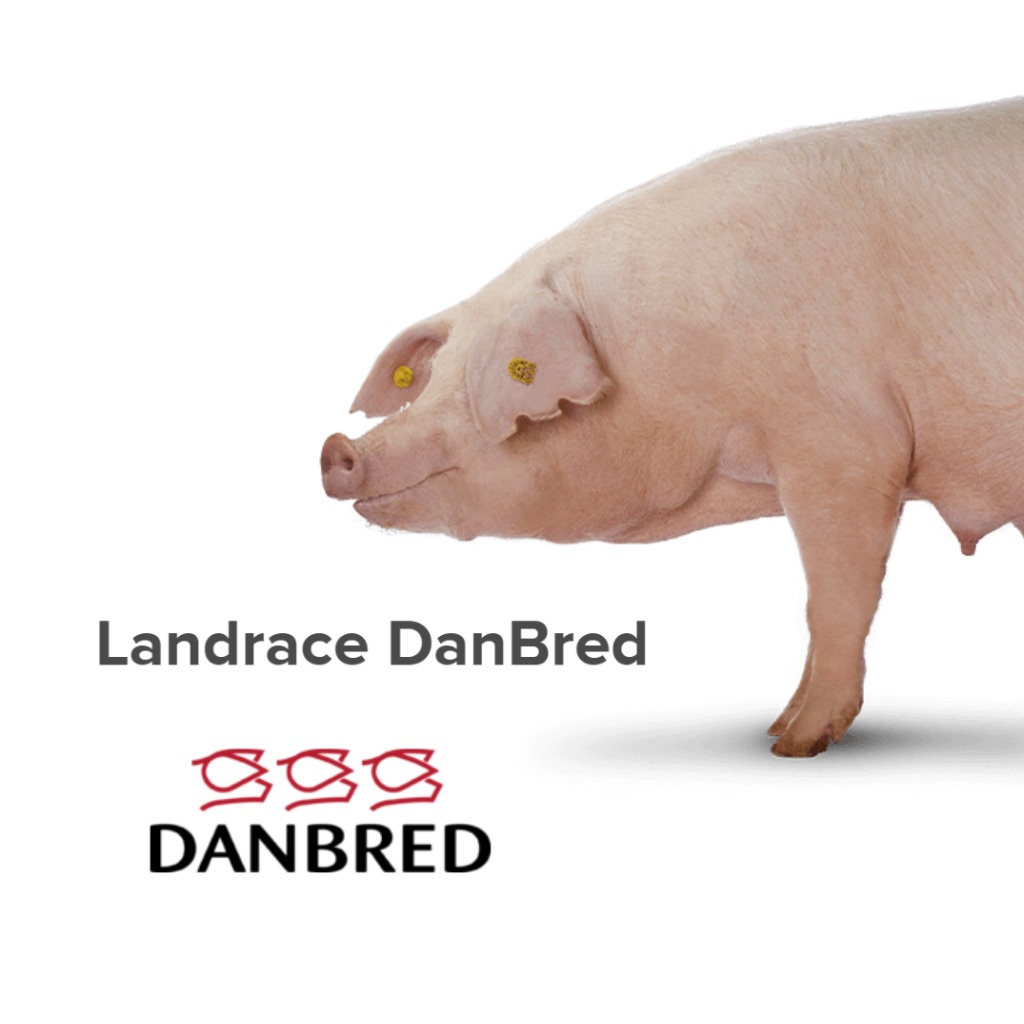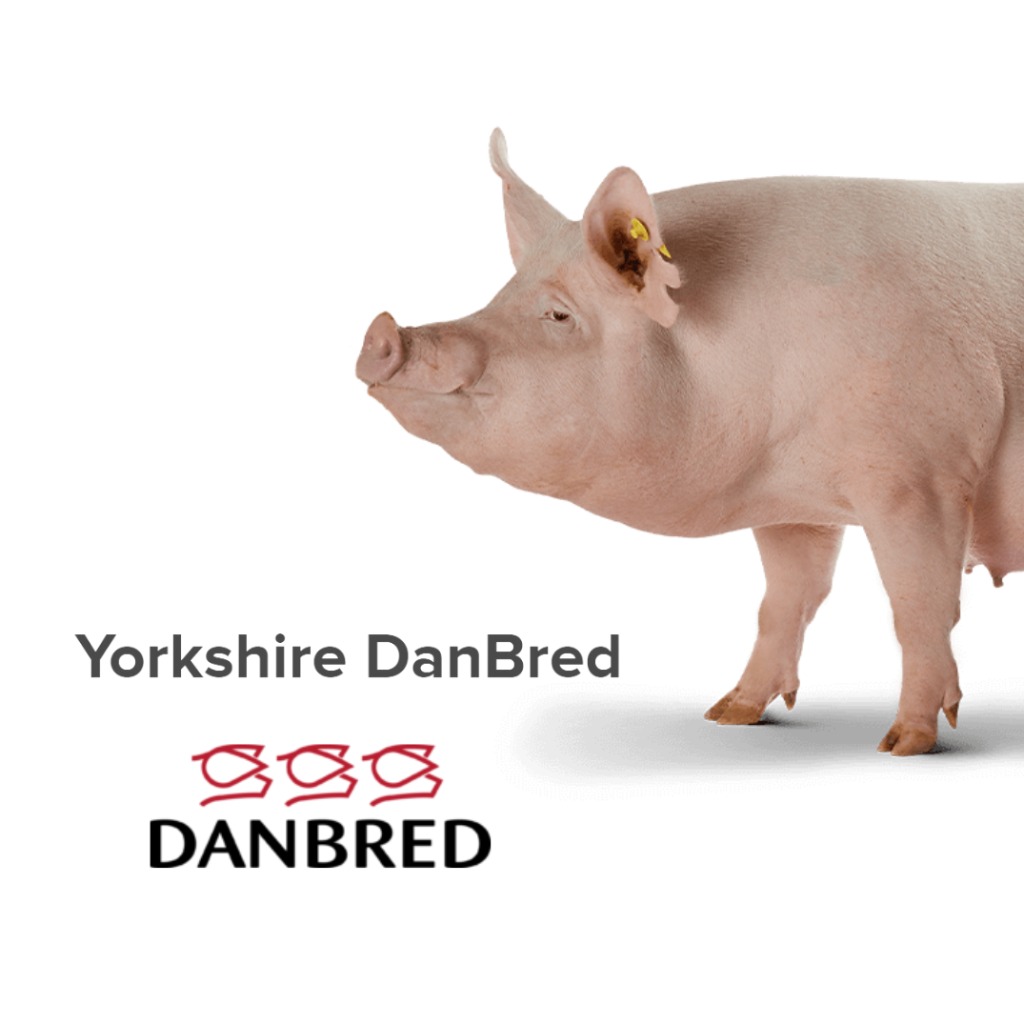Piglet survival increases with DanBred genetics
“When we improve the piglet’s own ability to survive, we see a rapid effect in production due to the improvements in DanBred Duroc. This means that pig producers who mate their sows with Duroc can see the results in the form of more vigorous piglets already now,” explains Anders Vernersen, Head of Department in Breeding & Genetics, Danish Agriculture & Food Council.
 Significant effect in the breeding nucleus
Significant effect in the breeding nucleus
Data on piglet survival from the past 12 months show an improvement of almost 5 percentage points in Duroc compared to the previous 12 months. This is significantly more than what we had expected before the new traits were implemented in the breeding goal.
“The breeding herds have noticed a big difference in their piglets over the past 12 months. They find that the piglets are more robust and see an increasing piglet survival. Of course, the new breeding goal cannot explain this improvement alone. There has been a strong focus on management initiatives in all breeding herds and especially the feeding of gilts. Similarly, you would expect to see an improvement in production herds, but genetics cannot stand alone,” explains Anders Vernersen.
For the female breeds, DanBred Landrace and DanBred Yorkshire, we see an improvement of approximately 2.5 and 1 percentage point respectively, on average over 12 months in the breeding and multiplication herds. Improvements via Landrace and Yorkshire take slightly longer to reach the production herds, as progress has to be made from the breeding nucleus via multiplication before it reaches the production sow.
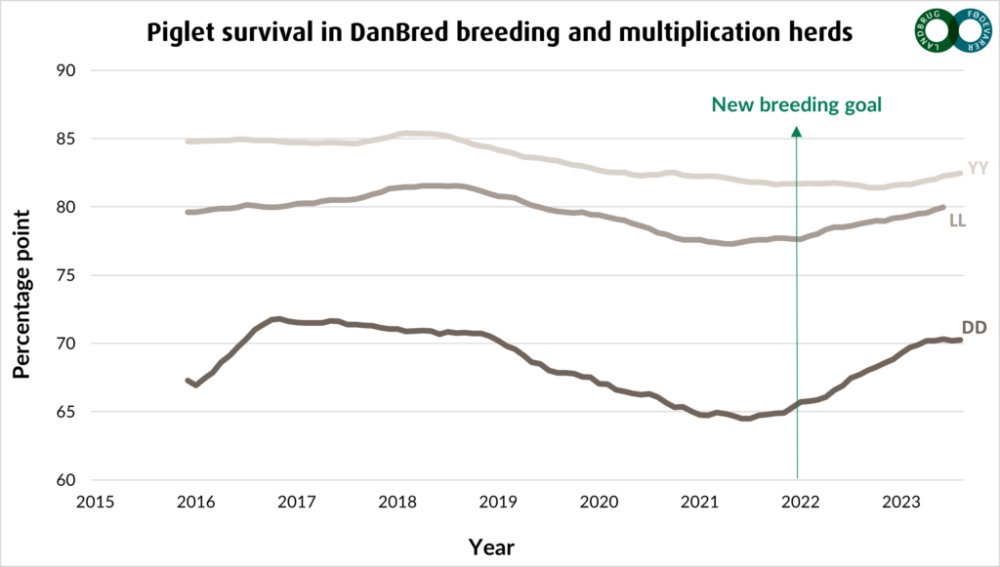
The graph shows piglet survival measured in DanBred’s breeding and multiplication herds for Yorkshire, Landrace and Duroc. After the new trait for piglet survival was introduced into the breeding goal in the summer of 2022, a significant improvement is seen in all three breeds.
The innovation behind the breeding goal
The research behind implementing the new traits is based on a large data base.
Data comes from the breeding and multiplication herds, which report dead piglets until weaning. The analysis uses statistical models that calculate breeding values for all pigs in the breeding nucleus. Based on data, the statistical model for piglet survival can separate the genetic effect coming from the sow, which describes the sow’s ability to make her piglets survive. It can also separate the genetic effect that comes from the piglet itself, which explains the piglet’s own ability to survive.
“When you choose the pigs with the highest breeding values, you get pigs that are better at surviving and sows that are better at making their piglets survive. The breeding goal of Duroc contributes to increasing the survivability of the piglet. Where Landrace and Yorkshire contribute both to the piglet’s survivability, but also to the sow becoming better at getting its own piglets to survive,” says Anders Vernersen.
An improvement in piglet survival is now also evident in production herds, especially due to the genetic potential of DanBred Duroc.
Great improvements in the breeding nucleus
After the implementation of the new breeding goal, the results for piglet survival show that there has been an improvement of almost 5 percentage points in DanBred Duroc over the past 12 months.
These are results from the breeding herds, but an improvement can also be seen in the production herds, and the progress will continue in the coming years.
Contact:
Contact us using the following form.

